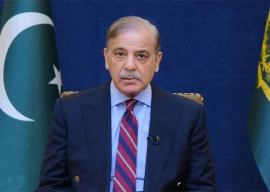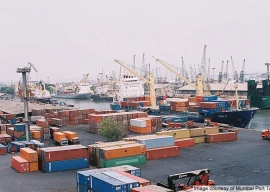
After nearly seven decades, the Kingdom of Saudi Arabia plans to end its sponsorship rule for foreign workers called kafala — in what can be described as an unprecedented step towards introducing major labour market reforms. The newly-planned contract between employers and employees — which defines the rights and duties of both the parties — expatriate migrant workers would be able to secure their exit and re-entry visas while also getting their final exit stamped on their own as well as taking up employment without any restriction or approval of the employer. This is truly good news for the 10.74 million-strong expatriate community in the Saudi Arabia that includes 1.06 million Pakistanis, apart from Syrians, Egyptians, Indians, Bangladeshis, Sri Lankans, Filipinos and Westerners, according to latest World Bank estimates.
The existing sponsorship system — which governs the relationship between expatriate workers and their employers — binds the worker, upon his arrival in the kingdom, to his sponsor under the terms of the employment contract. For years, this system was widely abused in the kingdom. Some sponsors used it to reduce expatriate workers to little more than serfs. At other times, many workers have been stranded in the country just because their sponsor would refuse to stamp their exit visas. Others would seek kickbacks to allow for basic things such as change of job. And in case a worker comes across a better employment opportunity, he is required to obtain clearance from his sponsor in order to switch to a new job. And this is where an expatriate worker is subjected to a worst kind of exploitation.
The rule has come under scrutiny in recent years where many Saudi organisations went bankrupt and then refused to stamp exits on visas of workers, leaving them to starve in squalid camps. Also, during the reigning coronavirus pandemic that has given a serious jolt to the Saudi economy, many sponsors and organisations were seen halting payments to their workers who were stuck in limbo such that they could neither return home nor could they stay where they were and starve.
However, in line with the economic reforms conceived as part of Crown Prince Muhammad Bin Salman’s Vision 2030, this practice is hopefully coming to an end. Free movement of people and for their relatives to obtain either residency or visit visas could also add a healthy jolt to the Saudi economy. What Riyadh would also hope to end is a perceived lack of competitiveness in its labour market, especially for Saudi citizens. Moreover, they want to revamp their outlook in the world where rights groups have frequently criticised the system for leaving workers vulnerable to exploitation.
However, it remains to be seen the extent to which the laws change and what kind of a system is adopted. Whether one will get a system more like the one used in the neighbouring United Arab Emirates — which has itself seen plenty of reforms over the past two decades — or more like the system in western nations, some of whom the Saudi Crown Prince hopes to woo with such rules. Either way, it seems it spells good news for expatriate workers who will finally have more control over their fate in a foreign land.
Published in The Express Tribune, November 1st, 2020.
Like Opinion & Editorial on Facebook, follow @ETOpEd on Twitter to receive all updates on all our daily pieces.




















COMMENTS
Comments are moderated and generally will be posted if they are on-topic and not abusive.
For more information, please see our Comments FAQ